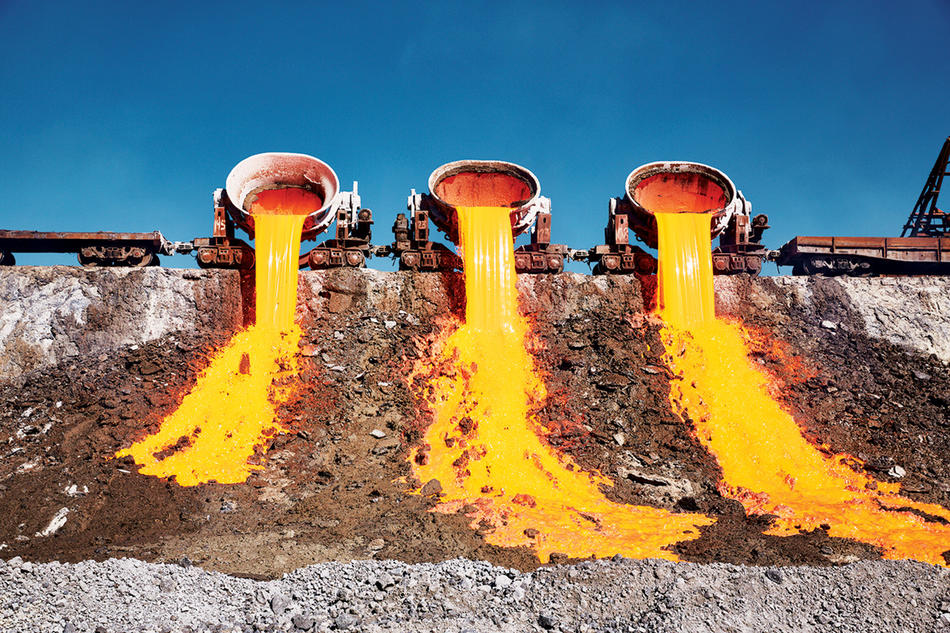The process of turning raw iron ore into steel generates enormous amounts of waste material, called slag, that accumulates in stockpiles where its toxic elements can cause environmental or health problems.
But what if steel companies could recycle that slag, separating out its constituent elements and repurposing them for other industrial uses? A team of Columbia engineers led by Ah-Hyung (Alissa) Park, the director of the Lenfest Center for Sustainable Energy, and Xiaozhou (Sean) Zhou ’15SEAS, an associate research scientist in the Department of Earth and Environmental Engineering and the Department of Chemical Engineering, has devised a system to do just that. And next spring, one of the world’s largest steel companies, China’s Baotou Iron and Steel Group, will implement the team’s technology, opening a twenty-thousand-square-foot slag-recycling facility at its flagship smelting plant in Inner Mongolia.
The project aims to eventually recycle all the nearly three million tons of slag that the plant stockpiles annually, turning it into a wide range of chemical and mineral products useful to the paper, plastic, paint, cement, oil, gas, and steel industries. “We even hope to recycle some of the slag that the company has already discarded, which covers almost one square mile of land,” says Zhou.
Park and Zhou’s technology grew out of their research in carbon capture and sequestration, which involves converting CO2 into carbonate minerals for storage. Once the researchers realized they could extract calcium carbonate from slag, they were able to develop an ultra-efficient system that pumps the waste through a series of reactors that remove its elements one by one.
The Columbia researchers say that their technology could improve the environmental sustainability of steel production throughout the world. While many other steel companies have begun to recycle some parts of their slag, by mixing their carbonate minerals into cement and paper, the new Baotou facility will be the first to approach a “zero-waste” recycling solution.
“The techniques we’ve developed have the potential to make iron and steel manufacturing substantially more sustainable, not only in China but globally,” says Park.



